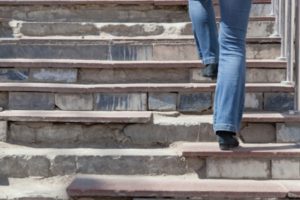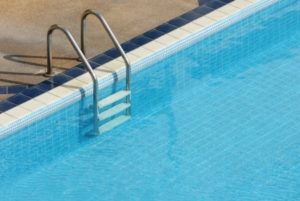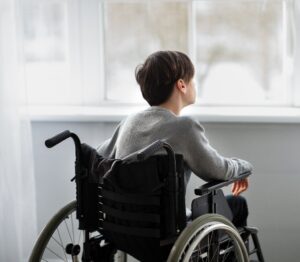Can I Sue My Neighbor for an Injury on Their Property?
When you’ve been injured on a neighbor’s property, you might feel confused, upset, and unsure about what to do next.
You may wonder about your options if you’ve suffered an injury while visiting next door. The short answer is yes, you can sue your neighbor for an injury on their property, but there’s more to consider before taking that step.
When an injury occurs on a neighbor’s property, the question of legal recourse often arises. The ability to sue a neighbor for such an injury depends on several factors and involves understanding premises liability law. Call a premises liability lawyer at Munley Law for a free consultation to review your legal options.
Why You Might Sue Your Neighbor for an Injury on Their Property
While suing a neighbor can be a difficult decision, there are several legitimate reasons why you might need to take this step if you’re injured on their property:
- Medical Expenses: If you’ve incurred significant medical bills due to the injury, a lawsuit may be necessary to recover these costs. This could include emergency treatment, ongoing care, or future medical needs related to the injury.
- Lost Wages: If your injury caused you to miss work or affected your ability to earn income, you may sue to recover these lost wages.
- Pain and Suffering: Injuries often come with physical pain and emotional distress. A lawsuit can seek compensation for these non-economic damages.
- Permanent Disability: If the injury resulted in long-term or permanent disability, you might sue to cover ongoing care costs and loss of future earning capacity.
- Property Damage: If any of your personal property was damaged in the incident, a lawsuit could seek reimbursement for repairs or replacement.
- Insurance Denial: If your neighbor’s insurance company denies your claim or offers an inadequate settlement, a lawsuit may be your only recourse for fair compensation.
- Negligence Accountability: If your neighbor’s negligence led to unsafe conditions, a lawsuit can hold them accountable and potentially prevent future incidents.
- Homeowner’s Insurance Limits: If your damages exceed the limits of your neighbor’s homeowner’s insurance policy, a lawsuit may be necessary to recover the full amount you’re owed.
- Disputed Liability: If there’s disagreement about who’s at fault for the injury, a lawsuit can establish liability through the legal process.
- Statute of Limitations: In some cases, you might need to file a lawsuit to preserve your right to compensation before the legal time limit (statute of limitations) expires.
An experienced premises liability attorney can guide you through this process, offering legal advice, handling negotiations, and representing you in court if needed.
Injured on Your Neighbor’s Property: Your Rights and Options
As someone who’s been hurt on another person’s property, you have certain rights:
- The right to seek medical attention
- The right to document the incident
- The right to file an insurance claim
- The right to pursue legal action if necessary

Immediate Steps to Take if You Are Injured
If you’ve been injured on your neighbor’s property, take these steps to protect your health and rights. Seek medical care right away, even if the injury seems minor.
Document everything about the incident:
- Take photos of the hazardous condition and your injuries
- Write down exactly what happened while it’s fresh in your mind
- Get contact information from any witnesses
- Report the incident to your neighbor
- Keep all medical records and receipts related to your injury
Common Premises Liability Issues in Private Homes
Your neighbor’s responsibility falls under the “premises liability” law. Property owners must take reasonable care to ensure their property is safe for visitors.
Private homes can harbor a variety of hazards that may lead to premises liability claims. Some of the most common issues
Structural issues like collapsing decks or unstable handrails can pose serious threats, as can toxic exposures from lead paint, asbestos, or carbon monoxide leaks. Homeowners should also be aware of potential liabilities from playground equipment, attractive nuisances like abandoned vehicles, and security issues such as inadequate lighting or broken locks. Weather-related hazards, particularly uncleared snow and ice, are common sources of accidents. Finally, failure to provide adequate warnings about known dangers can also lead to liability. Homeowners have a duty to maintain their property in a reasonably safe condition and address these potential hazards promptly to prevent injuries and avoid legal issues.
Homeowners have a duty to maintain their property in a reasonably safe condition and to warn visitors of known hazards. Neglecting these responsibilities can lead to serious injuries and potential liability. Regular inspection and maintenance of the property, along with prompt attention to any identified hazards, can help prevent many of these issues.

Dealing with Insurance and Your Injuries
Often, your neighbor’s homeowner’s insurance will cover injuries that occur on their property. Here’s what you should know:
- You can file a claim with your neighbor’s insurance company
- The insurance company will investigate the incident
- They may offer a settlement to cover your medical expenses and other costs
- Be cautious about accepting the first offer – it may not cover all your expenses
Most Homeowner’s insurance policies include personal liability coverage, which typically covers injuries to visitors. If you’re injured on a neighbor’s property, you usually file a claim with their insurance company. The insurer will then investigate the claim, reviewing medical reports, inspecting the property, and taking statements from involved parties.
Many cases are settled through insurance negotiations without going to court. The insurance company may offer a settlement to cover medical expenses, lost wages, and pain and suffering. However, it’s important to note that homeowner’s policies have liability limits, usually starting at $100,000. If your damages exceed this limit, you might need to pursue the homeowner directly for the remainder.
Filing a claim may increase the homeowner’s insurance premiums, and some policies have a deductible the homeowner must pay. Some policies also include “med pay” coverage, which can pay for minor injuries regardless of fault. The insurance company typically provides legal defense for the homeowner if a lawsuit is filed, and they may try to prove you were partially at fault to reduce the payout.
It’s worth noting that if your health insurance initially covers your medical bills, they may seek reimbursement from the homeowner’s insurance through subrogation. However, some injuries or circumstances, such as intentional acts, might be excluded from coverage. Insurance companies often prefer mediation or arbitration to resolve claims before going to court.
It’s always advisable to consult with a legal professional who can provide guidance specific to your circumstances and local laws.
When to Consider Legal Action for Your Premises Liability Claim
Sometimes, filing a lawsuit becomes necessary. Consider legal action if:
- The insurance company denies your claim
- The settlement offer doesn’t cover all your expenses
- Your injuries are severe or long-lasting
- Your neighbor disputes your account of what happened
Suing a neighbor for an injury on their property, while challenging, may be necessary to recover costs and seek justice. Primary reasons include recouping significant medical expenses, lost wages, and compensation for pain and suffering. If the injury results in permanent disability, a lawsuit can help cover ongoing care and loss of future earning capacity. Property damage reimbursement and holding the neighbor accountable for negligence are also valid reasons.
Legal action might be required if insurance claims are denied or settlements are inadequate, or if damages exceed the neighbor’s insurance policy limits. In cases of disputed liability, a lawsuit can officially establish fault. Additionally, filing within the statute of limitations preserves your right to compensation.
Questions and Factors to Consider in a Premises Liability Lawsuit
Several key factors influence the viability of a lawsuit:
- Circumstances of the injury
- Legal status on the property (invited guest, trespasser, etc.)
- Property owner’s negligence or fault
- Local premises liability laws
Before you decide to sue, ask yourself:
- Was there a dangerous condition your neighbor should have known about?
- Did they fail to warn you or fix the problem?
- Were you invited onto the property?
- Did your actions contribute to the injury?
Dealing with an injury on a neighbor’s property can strain relationships. While prioritizing your health and rights, maintain open, respectful communication. Remember, most neighbors don’t intend for accidents to happen and may feel genuinely concerned about your well-being.
Talk to a Premises Liability Attorneys at Munley Law
If you’re considering suing a neighbor for an injury on their property, Munley Law’s 65 years of experience in personal injury and premises liability cases makes us uniquely qualified to guide you through this challenging process. We will:
- Evaluate the strength of your case
- Handle communications with insurance companies
- Ensure you meet all legal deadlines
- Represent you in court if necessary
- Help maximize your compensation

We offer free initial consultations and work on a contingency basis, meaning you only pay if you win your case.

Marion Munley
Marion Munley has been practicing personal injury law for nearly 40 years. She is triple board-certified by the National Board of Trial Advocacy for Truck Accident Law, Civil Trial Law, and Civil Practice Advocacy. She currently serves as Vice President of the American Association for Justice, an organization dedicated to safeguarding victims’ rights. Marion has won many multimillion-dollar recoveries for her clients, including one of the largest trucking accident settlements in history. She has been named a Top 10 Super Lawyer in Pennsylvania since 2023, a Best Lawyer in America, and was recently inducted to the Lawdragon Hall of Fame.











